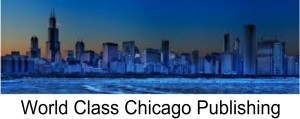For a city that favors the fine arts over the popular arts and endowed institutions over commercial producers, Lake FX 2016, sponsored by the City’s Department of Cultural Affairs and Special Events, was a positive development. The target of this exposition, exhibition and summit was the “artist and creative entrepreneur.” It is encouraging that the at least someone in Chicago’s government recognizes that there are more artists and creative entrepreneurs in the popular arts than the fine arts. Not that Lake FX 2016 excluded the fine arts by any measure. There were several panels and presentations specifically for dance and many other panels, such as on venue licensing or branding, is as relevant for a Shakespearean opera company as for a comedy club.
While many panels and workshops were general in nature and universal in application, of those that were specific to a particular genre, music was by far the most dominant. So much so, that one workshop with bands performing nearly drowned out panel discussions in other parts of the building. Besides music, filmmaking, fashion, theater had multiple sessions while the Visual Arts had far fewer and conspicuously missing from the summit was literary publishing and television program production.
The lack of much in the way of literature may be explained by the concurrent Book Exposition sponsored by the American Booksellers Association in McCormick Place. Many of Chicago’s publishing companies and institutions, from Albert Whitman & Company which is the last surviving company from the era when Chicago was a national center of children’s literature to the University of Chicago Press which is one of the oldest University publishers in America, were involved in activities of the Book Exposition which rotates between cities. Still this seems to be a lost opportunity. The Book Exposition is closed to the public even though there is much that would interest many Chicagoans. The recent NFL draft bespeaks how a business convention can be leveraged to include the public and benefit Chicago.
Harder to explain is the lack of interest in television program production. Chicago’s program production industry is at a nadir but still there are people involved in this art form. Ignoring the industry only exacerbates the problem of its decline.

Recent Comments